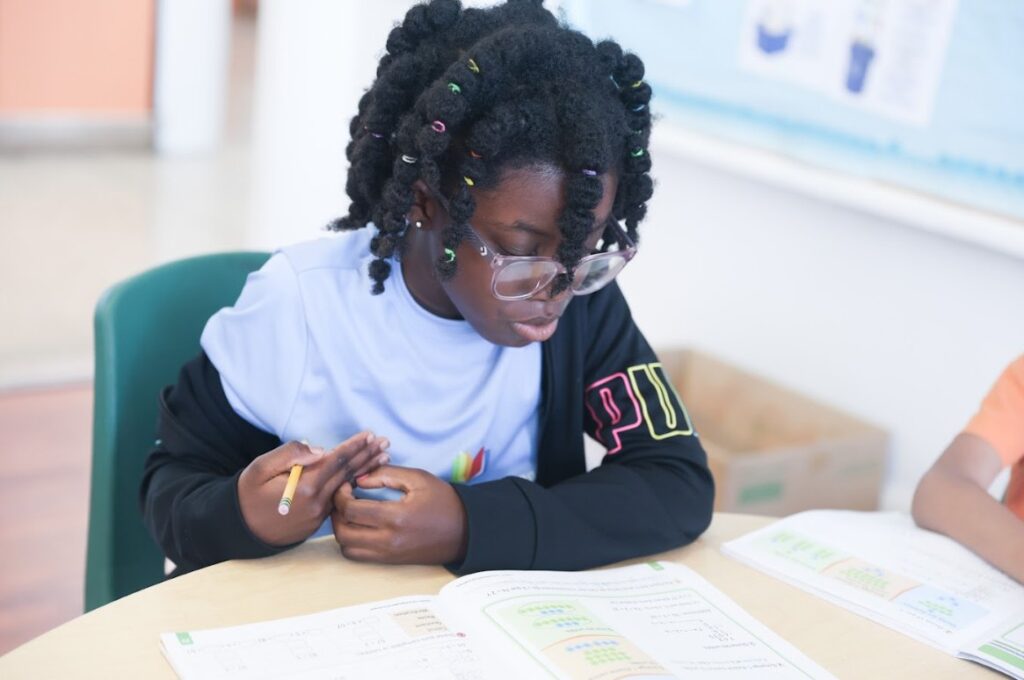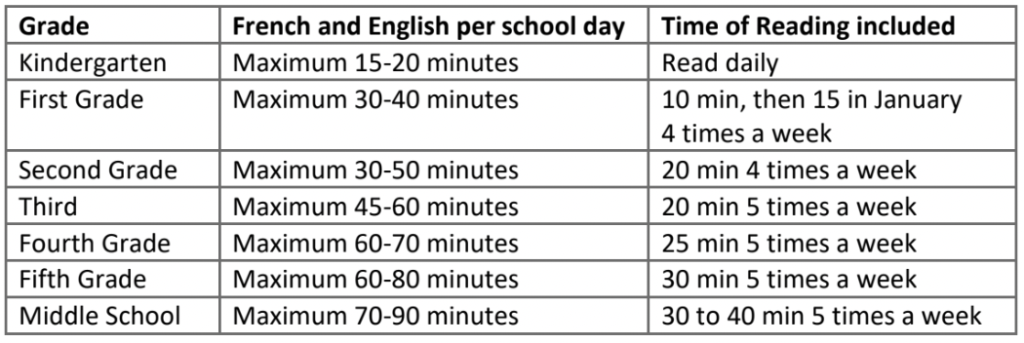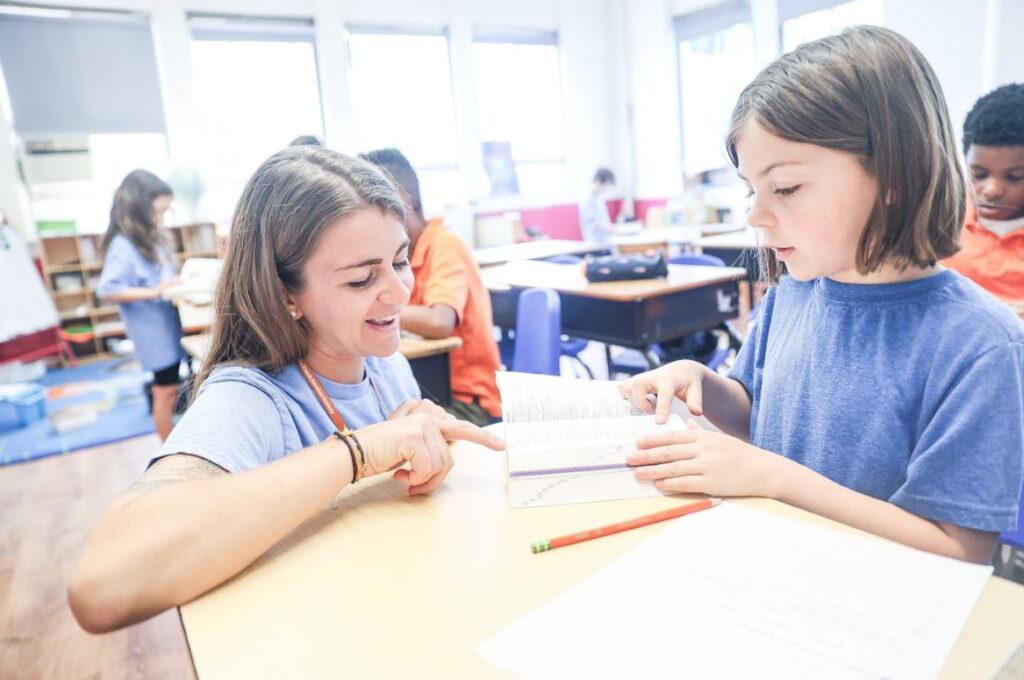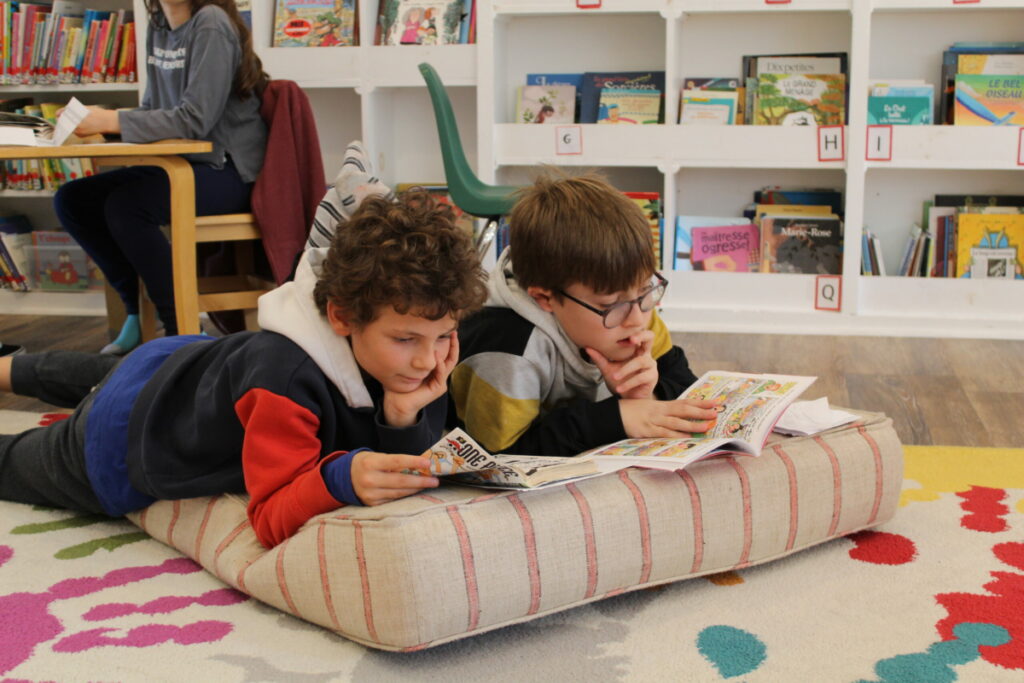Author: Lola Gueguen
Estimated reading time: 6 minutes
Table of contents
Homework is one of the most debated topics in education today, with ongoing questions about whether students are being asked to do too much or too little after school. Some are concerned about its impact on young learners. Excessive homework may interfere with a child’s rest, play, and overall well-being, ultimately undermining the appropriateness and effectiveness of homework. Others argue that homework builds responsibility, reinforces academic skills, and creates an important link between school and home.
At the FAA, we strive to strike a thoughtful balance. Our approach emphasizes student achievement, independence, and responsibility, while ensuring that homework supports appropriate and effective learning. Homework is not designed to cause stress. Instead, it provides opportunities for students to meaningfully apply what they’ve learned in class and to invite families into the child’s learning process at home.
Expectations for Students, Families, and Teachers

At the FAA, homework is a shared responsibility:
- Students: Expected to set aside time at home to complete quality assignments independently and on time.
- Families: Play an equally important role by creating a home environment that supports learning and encouraging your children through frustrations and challenges.
- When difficulties arise, parents are encouraged to offer guidance and support without completing the work for them.
- Maintain open communication with teachers so that challenges can be addressed collaboratively and effectively.
- Teachers: Expected to assign relevant, challenging, and meaningful homework that reinforces classroom learning.
- Teachers also work together to ensure assignments are reasonable, age-appropriate, and balanced across subjects.s.
How Much Homework Is Appropriate?
The FAA individualizes homework based on age, developmental, and each student’s unique needs. The following chart indicates the approximate amount of time a child is expected to spend on homework. As the student grows older, the amount of homework they are reasonably expected to complete increases gradually. However, this may be adapted depending on the strengths and weaknesses of each student.

The Risks of Excessive Homework
While homework can support learning, too much of it can actually do more harm than good.
Research shows that excessive amounts of homework are linked to higher stress levels, sleep loss, and reduced family time. A Stanford University researcher, Denise Pope, found that too much homework can reduce its effectiveness. Her study of more than 4,000 high school students revealed that students experienced greater stress, more physical health problems (e.g., headaches, stomachaches, and sleep deprivation), and less time for friends, family, and extracurricular activities when homework loads were too heavy. The benefits of homework actually plateaued after approximately two hours per night, suggesting that 90 minutes to 2.5 hours is optimal for high school students (Parker, 2014).

The National Education Association supports a similar guideline: no more than 10 minutes of homework per grade level each night. By this standard, a high school senior should receive around two hours of homework, an amount that is both appropriate and consistent with the FAA policy. Research shows that homework beyond this threshold is not only unhelpful but harmful. Excessive amounts of homework can negatively affect students’ perceptions and attitudes about school, their self-confidence, academic performance, social skills, and overall quality of life (Lathan, 2025).
For younger students, homework that exceeds these recommendations often creates family stress and conflict, particularly for parents who may feel unable to support their child’s work at home. Research also points to inequities: students from more affluent households typically have greater access to resources, parental support, and designated study spaces, while those from more disadvantaged homes may lack consistent support and struggle to complete assignments effectively.
Overwhelming amounts of homework can also take time away from valuable opportunities for children to participate in after-school activities, a critical time when kids develop important social skills and interests (Levy, 2019).
The Benefits of Purposeful Homework

In alignment with these recommendations, it is clear that homework continues to play an important role throughout a child’s K-12 education. When thoughtfully designed, homework reinforces classroom learning, engages students, and remains relevant to what is being taught. Research shows that purposeful homework is associated with improved student achievement and the development of key skills like discipline, independence, self-direction, and problem-solving. It also provides students from all backgrounds with opportunities to continue learning beyond the school day. Homework further strengthens students’ autonomy, responsibility, and time-management skills and encourages students to discover their own capabilities beyond teacher guidance and outside the classroom. (Moskowitz, 2022).
Importantly, it also fosters family engagement, which is critical for student success and creates a sense of shared responsibility between home and school (Hallett, 2024). When families are involved in their child’s education, students are more likely to feel supported, motivated, and confident in their abilities. This involvement doesn’t mean completing assignments for the child, but rather showing interest in what they are learning, encouraging effort, communicating with teachers, and providing a structured environment at home. Taken together, these benefits highlight why eliminating or significantly reducing homework would not only deprive students of valuable opportunities to strengthen their academic skills and personal growth but also limit family-school collaboration.
Supporting Homework at Home: Tips for Families
To support homework completion and foster positive work habits at home, the FAA strongly recommends the following strategies:
- Environment: Create a quiet and distraction-free space dedicated to homework
- Consistency: Establish a daily routine, such as working at the same time and in the same place
- Organization: Use a simple checklist to break down larger assignments and to keep track of completed homework
- Breaks: Encourage short breaks, such as 20 minutes of work followed by a 5-minute pause, until homework is finished. For larger assignments, break them into smaller, more manageable tasks.
- Parental Support: Offer encouragement, feedback, and guidance without doing the work for their child
- Communication: Maintain open communication between parents and teachers to support student progress and create a link between the child’s academic and social experiences in both settings
- Balance: Prioritize healthy routines that include sufficient sleep, free play, family time, and extracurricular activities alongside homework.
Finding the Right Balance
Ultimately, current research underscores the importance of balance: homework should always serve a clear purpose, provide meaningful benefits, and never take away from students’ opportunities to pursue other interests, activities, and skills after school. “Busy work” discourages genuine learning and is often completed mindlessly for the sake of points, sending the wrong message that homework is about grades rather than growth and skill development. In the same way, when parents complete homework for their child, it reinforces a similar message and removes valuable opportunities to build an authentic family-school partnership. Research shows that genuine family engagement is linked to positive student outcomes like higher achievement, better attitudes toward learning, and stronger social skills. At the FAA, we believe that thoughtfully designed assignments, paired with positive homework habits, prepare students for lifelong learning and support their success both inside and outside the classroom.







